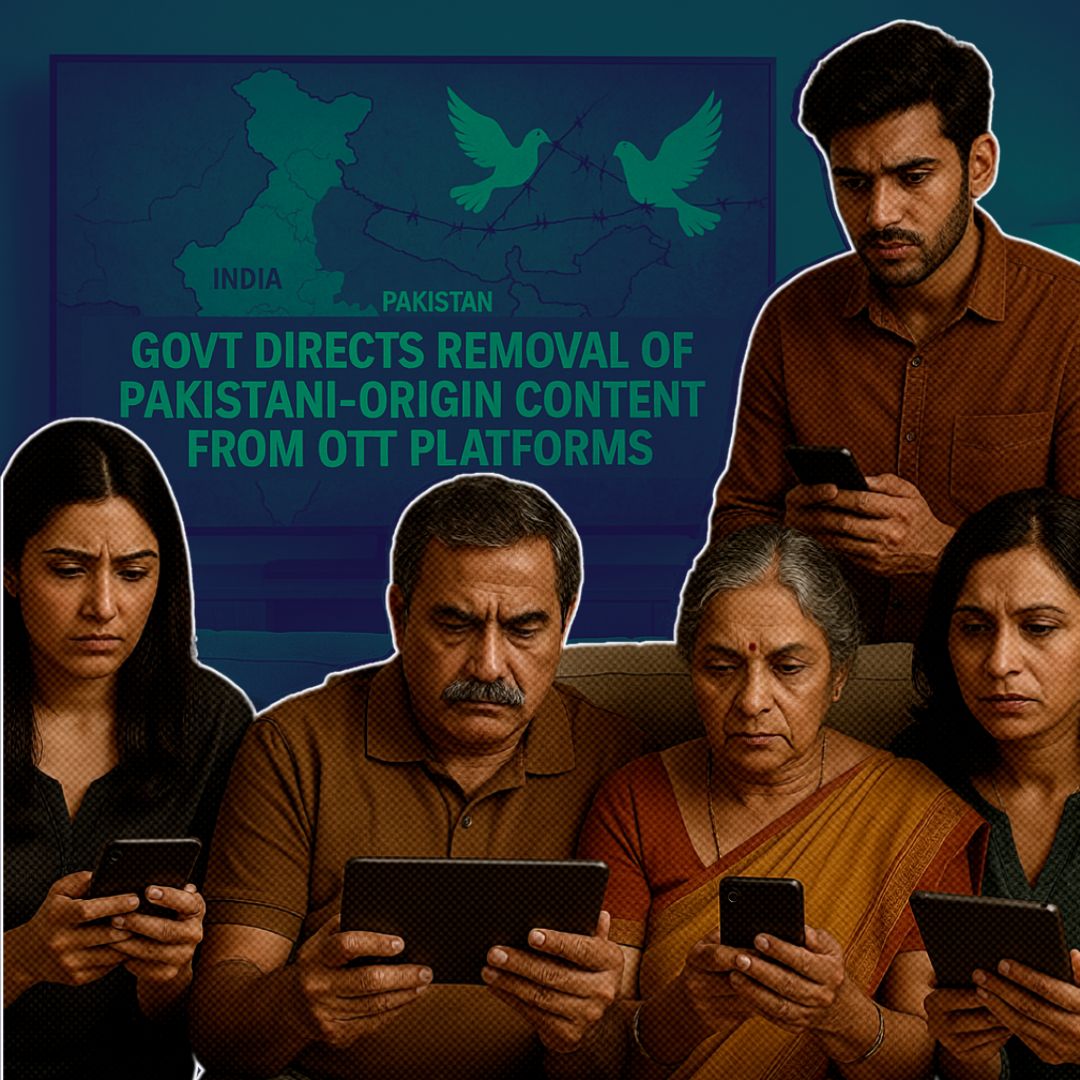The Ministry of Information and Broadcasting, Government of India, has issued a directive to all OTT platforms and digital streaming services operating in India to immediately remove all content originating from Pakistan. This includes films, web series, songs, podcasts, and other streaming media, irrespective of whether the content is subscription-based or freely accessible.
The advisory follows the April 22, 2025 terrorist attack in Pahalgam, Jammu and Kashmir, which claimed the lives of 26 civilians and one Nepali national, and was allegedly orchestrated by Pakistan-based terror groups.
The directive, issued under the Information Technology (Intermediary Guidelines and Digital Media Ethics Code) Rules, 2021, aims to protect India’s sovereignty, integrity, and public order amid escalating Indo-Pak tensions marked by India’s military Operation Sindoor and ongoing cross-border hostilities. Streaming platforms and Pakistani artists have not yet issued official statements in response to the government’s advisory.
National Security Takes Priority: Government’s Directive to OTT Platforms
The Ministry of Information and Broadcasting’s advisory, signed by Deputy Director Kshitij Aggarwal on May 7, 2025, emphasises the urgent need for OTT platforms, media streaming services, and intermediaries to discontinue all Pakistani-origin content with immediate effect.
The statement underscores that this directive applies to all digital content, whether available on subscription models or free platforms. The government cited recent terrorist activities, particularly the Pahalgam attack, as a trigger for this decision.
The attack, which targeted civilians in a popular tourist destination in Jammu and Kashmir, has been linked to Pakistan-based terror outfits. In response, India launched Operation Sindoor, a military campaign aimed at dismantling terror infrastructure across the Line of Control. Officials have warned that hosting Pakistani content could be exploited to spread propaganda or incite unrest, thereby threatening India’s national security and public order.
Cultural and Digital Fallout Amid Rising Indo-Pak Hostilities
This advisory forms part of a broader clampdown on Pakistani cultural and digital presence in India amidst deteriorating bilateral relations. Over recent months, India has banned social media accounts of prominent Pakistani artists such as Fawad Khan and Atif Aslam, citing concerns over provocative content.
Additionally, the release of Pakistani films like “Abir Gulaal” has been halted, and 16 Pakistani YouTube channels accused of spreading misleading or inflammatory content were banned earlier this year. Pakistani dramas, music, and films had enjoyed significant popularity on Indian streaming platforms like Zee5, Spotify, and Amazon Prime Video, contributing to cultural exchange and people-to-people connections.
However, the current directive marks a significant rupture in this cultural engagement. Pakistan has responded with reciprocal bans on Indian channels and websites, further straining the digital and cultural ties between the two nations.
The Logical Indian’s Perspective
While the government’s concerns about national security are valid and must be taken seriously, The Logical Indian believes that sweeping bans on cultural content risk deepening the divide between India and Pakistan, two countries with shared histories and intertwined cultures.
Art, music, and storytelling have historically served as powerful bridges for empathy, dialogue, and understanding, even amid political conflicts. Blanket prohibitions on Pakistani content may inadvertently silence voices that promote peace and coexistence, hardening attitudes on both sides.
The Logical Indian urges policymakers, media platforms, and citizens to seek a balanced approach that safeguards security without sacrificing opportunities for cultural exchange and dialogue. In these tense times, how can India uphold its security imperatives while fostering openness and empathy that pave the way for lasting peace? We invite our readers to reflect and share their views in the comments below.












